African Hair Care Products do not have to be cheap
I was at a couple trade shows few months ago representing some Brands that are well known and very popular in the social media world that were now beginning to peak into the retail shelves and retail space of nationally known retail chain stores. As I was trying to show and explain these new lines to the store owners and managers, I began to realize that some people in our beauty industry have this awful mindset, a stigma, that African American products must be cheap to sell in our stores. I was puzzled because these owners and managers, were not entrepreneurs that were new to the beauty industry. Some of them even owned more than one store and have been doing businesses in this category for over decades. They were explaining to me that for a product to be successful in their stores that the price of the product must be cheap.
I guess this was true at one point in history of our African American Hair care Beauty Industry, about 30-40 years ago, back when our African American consumers, mostly females, didn’t have a choice because the lack of availability of products out in the market. Also considering that most of the products, back then, were made by white men, or men in general that only cared about the cost of the goods rather than the actual quality of the goods because the consideration of the average African American income during the time of the Civil Rights movement which was way less than what it is today.
Now, times have evolved, and so did our industry. African American women have more say in what they can and will put in their hair. If you ever get a chance, go watch the movie called “GOOD HAIR” with the star infamous for the slap heard around the world, CHRIS ROCK! This movie will give you some perspective on how our industry has changed over time.
Besides on how African American Hair products became better, I’ll get to this in a bit. First, let’s talk about our consumers and how their buying powers have grown tremendously. Back in 2017, 5 years ago, a study from Nielsen data – data collected from national retail chain stores- not OTC, show that our consumer, the African American women, spent nearly nine times more than non-Black consumers on ethnic hair and beauty products with $473 million in total hair care, $127 million grooming aids, and $465 million in skincare and spent a total of a tremendous $1.1 billion on beauty supplies annually. This does not include weaves, extensions, wigs or styling tools and appliances.
Also let me remind you that this number did not include any sales from our independently owned Beauty Supply Stores (OTC) or e-commerce because Nielsen Data is only limited from NATIONAL RETAIL CHAIN STORE data. So, this should tell you why Target, Ulta Beauty, Wal-mart, CVS, Walgreens, and Sallys are interested and investing hard in our industry and will be our main competitors that is and will slowly eat away on our share of the market.
Before we move on to the evolution of our products, let me get you some history about why our consumer spends so much on hair. For many African American women, hair is a staple of their identity and heritage, with Black hair being such an essential feature of black history. In early African civilizations, hairstyles could map a person’s family background, tribe, and social status. African American hair has even been used as symbols of political and religious affiliations. Hair to Black women is their characteristics to their creativity. It’s the crown, and Black women everywhere are celebrating the diversity through their hair.
As mentioned previously, Black women did not have a lot of choices to choose from for their hair care needs until now. Think about it for a second, as a store owner that supposed to know and master what we sell, we do not. As manufactures of these products, we are supposed to know what our consumer needs, but we do not. This has been going on for decades until the evolution of our products came recently through the world wide web and different social media platforms. Therefore, we have been witnessing the evolution of our hair care product history. We see more and more “Kitchen Chemists” start their brands online and bring them into retail. They can even charge more and become even more successful than some of the companies that have been established for decades while these more experienced companies are doing the same thing and losing their market shares to these young entrepreneurs.
These new evolved brands listen to their consumers and put in real natural ingredients that are effective and healthy which eventually causes the price to go up, which is common sense. But the good thing is, our consumers are willing to pay for these. These are products that they never had the chance to purchase back in the days because of the STIGMA that African American Hair care products must be cheap.
The Scary part is that if we do not listen and see how our Market is changing and doing, our competitors will. Have you been to Target lately? Go check out their “Texture Hair Care” section. They are moving our market with products and leading our market with products that OTC owners and managers deemed “too expensive” and “too new”. They are even offering it online. OTC will lose a lot of consumers to that side of the market because we do not carry these items in our stores.
Here are some examples of products that are available in RETAIL CHAINS that our OTC side was reluctant to take on that are doing well in the retail chain shelves.
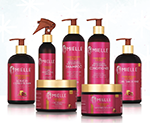
Mielle Organics
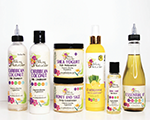
Alikay Naturals
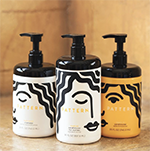
Pattern Beauty
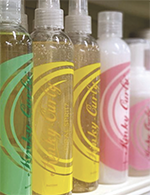
Kinky Curly
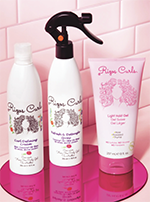
Rizos Curls
Not all of the things or brands that are in Retail Chains sell well. But the point I am trying to make is that we need to open our minds when it comes to taking on new products, change our way of buying. Big Retail Chains look at data, but we seem to still go buy on word of mouth to see what sells well and what is popular. We must become better at carrying good products. We must be better at listening to our consumers. We must educate ourselves. We are all salesmen. We must know our products.
Because of better ingredients and better formula that fits the need for African American women, these newer brand owners can charge the higher price. They can build instant followers and fanbase because they make quality products. So next time, before you judge the product and deem that it doesn’t fit the criteria of “CHEAP”, please do more research so you won’t lose your customer to the next store that is listening to our consumers.